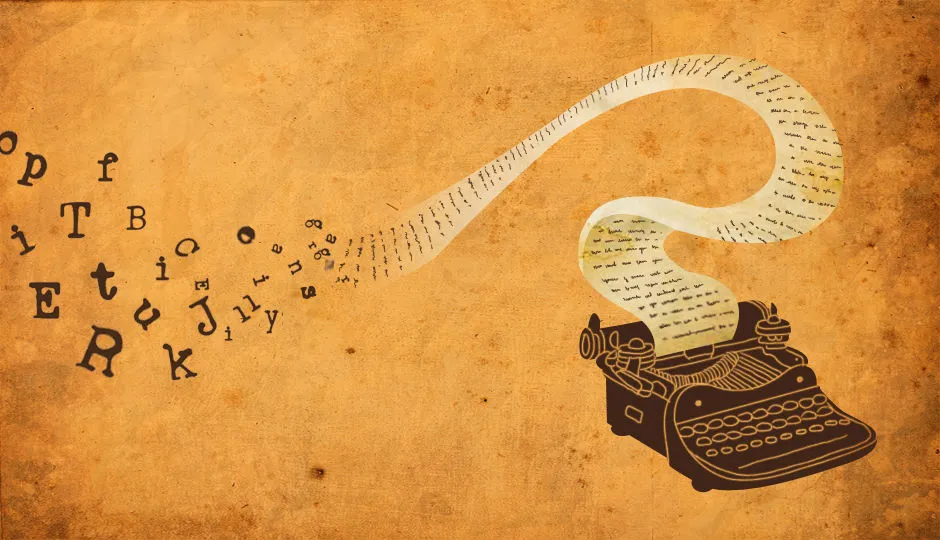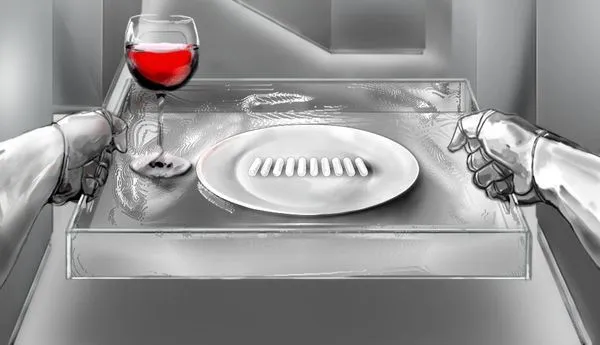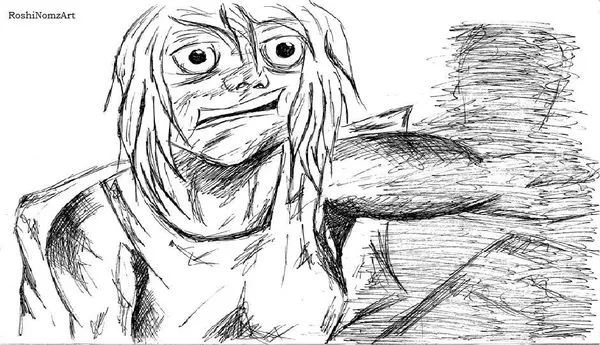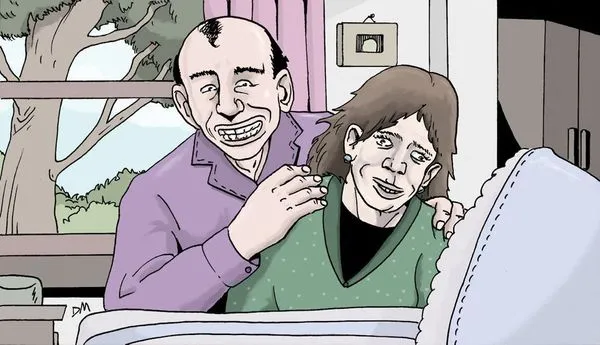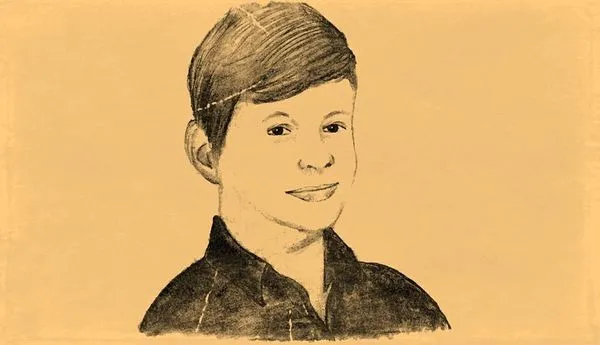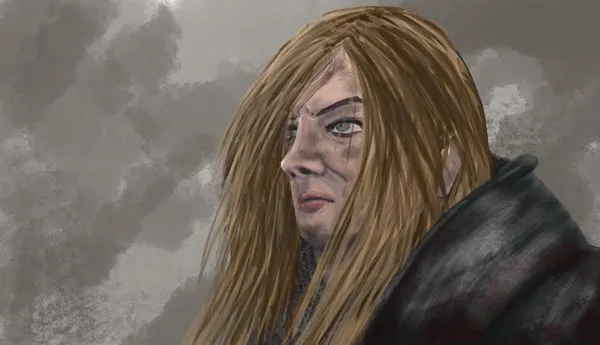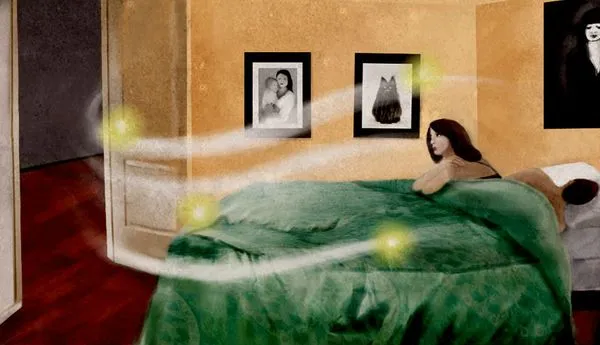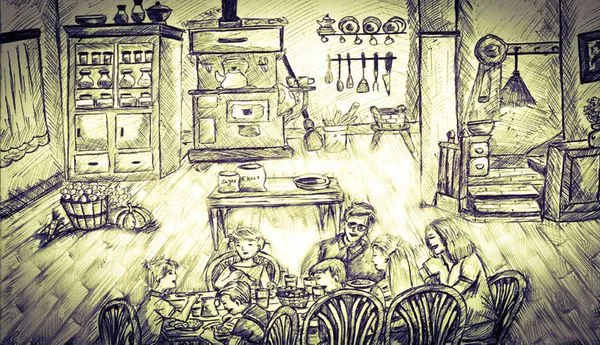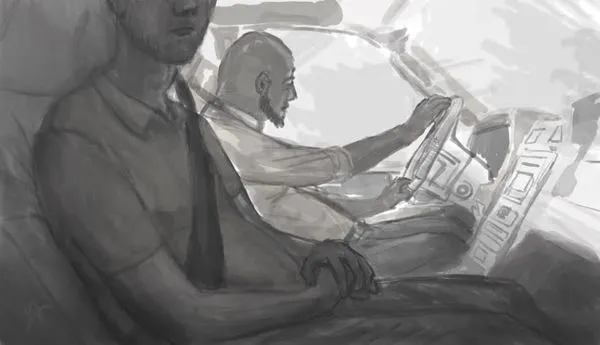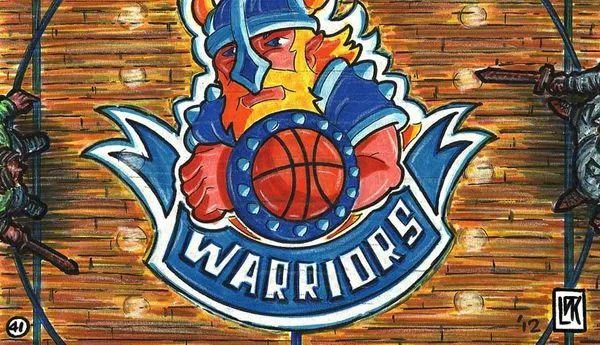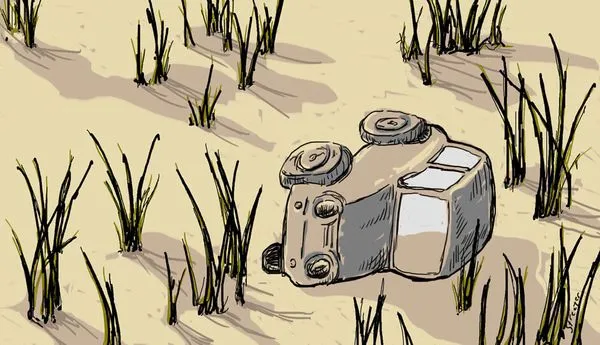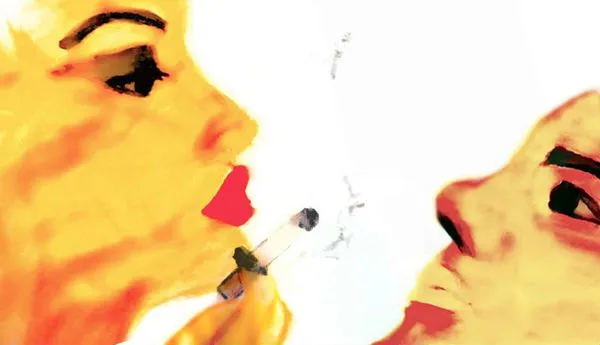Jump Cut
Walter Giersbach | Alankrita Amaya
Published on 2015-07-23
Thirsty debated whether to open with the credits rolling over a slow crane shot of an apocalyptically devastated cityscape. Or, maybe the opening should be shot in black and white, like Jack Warner’s Wizard of Oz was b&w till Dorothy stepped into Oz.
He’d written the script, or he would write it, but subconscious prompts made him suspicious something had already been written for him. Thirsty — he always referred to himself in the third person — sensed his life was orchestrated, that he was pulled from central casting to play the role of script writer. Seduced out of New York and Paris and assigned to Hollywood hack work. And why had Jilly appeared as his wife while Zelda was still in that hospital?
It must have been that Greek producer Mezinis. Mezinis had made so many script changes, trashed so many of Thirsty’s rewrites. And now Jilly had been written into his life as a wife, mistress, watchdog, whatever. She was just some Hollywood floozy with a leftover life to kill. A bit part player acting as a foil to his character, never getting a mention unless you squinted at the fine print on the movie cards.
Did Thirsty create her or was Jilly creating him? Maybe constructing and destroying each other was an allegory for marriage, but he didn’t think they were married. The only sure thing was his blockbuster novel hidden in the icebox under a pot of stewed eggplant. No one would touch that. His book would be a tour de force, blowing the top off Hollywood.
If only he could remember. He lit a cigarette, then forgot his hand until his knuckle burned.
Back to the script in the typewriter. Thirsty shifted his bare legs by the pool, moving the machine out of the sun. Okay, cut to newspapers blowing down Broadway. The Great White way where Thirsty’s heart lay. Close-up of the Daily News head: “End of the World.” That would be a location shot, with Orson Welles letting the paper flutter to the street. Orson could do that, temperamental bastard that he was.
God, he was tired. Needed another drink. Partly, the confusion lay in Mezinis overriding Von Lackmann. The hotshot director from Berlin demanded changes, then Mezinis shitcanned pages of script as soon as Thirsty typed them. The two were making him crazy!
“What’s this trailer park setting?” Mezinis screamed.
“It’s about everyday Joes facing the end of the world,” Thirsty explained.
“Everyday? They’re trailer park trash. Nobody pays to see losers!”
This was Thirsty’s work, his life. Delete that: his new life as a script meister. No longer a novelist waiting for literary recognition. The bungalow in LA was his cage, complete with the circumscription of space to focus all his energies inwardly on the script.
Except, lately, he began to suspect Jilly wasn’t his wife. He had no memory of meeting her, wooing her, lunches on Sunset Strip. Mezinis must’ve put her into his script life to keep him happy. Keep him focused. But focus didn’t come from Jilly’s body. It was the cocaine and weed she provided, the bottles of single malt — all in lieu of a paycheck. It had been weeks since he’d seen any money.
“Don’t worry about the money,” Von Lackmann advised. “This picture gets made, you’ll get your credit back. You can name your own price.”
There wasn’t going to be a picture! He’d never get paid more than equity minimum. Jilly would dissolve and his life would cut to black. One day, a cinema archeologist would break down the bungalow door and find Thirsty’s skeleton still clutching his typewriter. They’d even uncover the novel.
What scared the piss out him was yesterday when he walked into the studio. Von Lackmann was making a pitch and Mezinis was on the edge of his seat. “Then the much-vaunted novelist is destroyed by his own hubris.” Von Lackmann gloated, stretching out his arms like he was Jesus on the cross.
“Wonderful!” Mezinis crowed. “The living get dead and the dead get to go on living. Box office!” He pointed at Thirsty. “I want life and death and pain and fear. You? You give me losers I can see outside my window, schmuck!”
But Thirsty had one last trick. He would write Von Lackmann and Mezinis out of the script. They’d die a horrible death so he could be free. Pre-apocalyptic, the asteroid would hit them. Isn’t that what Nathanial West would’ve done? Kill ‘em both, fade to black. That’s a wrap.
Sweat poured into his eyes as he blindly reached for the bottle, knocking it to the pool deck.
“What the hell are you doing?” Jilly was screaming her irrational questions again. “Are you crazy?” No, all her questions were really statements.
He knew what he was doing. He was a writer who had created an entire age. His fingers began typing. Thirsty was the angelic writer incarnate, the deified hack able to leap entire dimensions of reality. He would punch out a script change that deleted Jilly. Smiling with satisfaction, he saw the woman disappear.
The Scotch bottle could be restored with a few more clicks. He wiped his eyes, grabbed a cigarette and took a long drag.
Now, to dramatically eliminate Mezinis and Von Lackmann. Have them pitch backward into a crevasse that opens in the middle of Times Square.
Click click click. They were gone.
He heard Jilly’s voice say, “Thirsty’s been like this all day.” But she was obliterated, so it really couldn’t be her.
What he felt were two pairs of strong hands grabbing his arms and hoisting him out of the pool chair.
“It’s not happening,” he said.
“Sorry, Thirsty.” Von Lackmann’s voice wafted over him. “Nothing personal, but I need that unpublished novel of yours Jilly showed me. They’ll take good care of you at the hospital, like they’re taking care of Zelda.”

